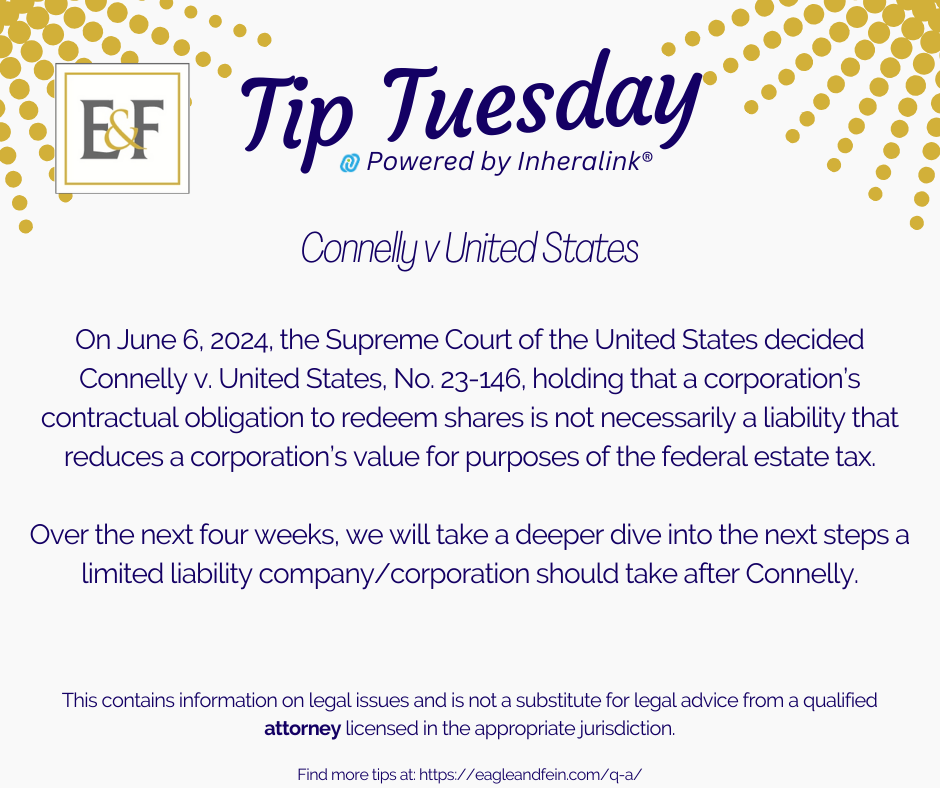02 Jul Tip Tuesday
Welcome to Eagle & Fein, P.C.
⚖️On June 6, 2024, the Supreme Court of the United States decided Connelly v. United States, No. 23-146, holding that a corporation’s contractual obligation to redeem shares is not necessarily a liability that reduces a corporation’s value for purposes of the federal estate tax.
Two brothers were the sole shareholders in a closely held corporation. The brothers and the corporation entered into a “wait and see” buy-sell agreement, wherein each brother had a right to purchase the other brother’s shares in the event of the death of the other brother, and if the surviving brother did not exercise his right to purchase, then the corporation was required to redeem the deceased brother’s shares. The Corporation took out a life insurance policy on each brother to fund a wait and see buy-sell agreement.
The corporation received the life insurance proceeds and redeemed the shares, at an agreed-upon price of $3,000,000, after the surviving brother declined to exercise his right to purchase. The surviving brother then filed a federal tax return as executor for his deceased brother’s estate in which he reported the value of those shares at the $3 million redemption price, not including the death benefit of the life insurance in the value of the corporation.
The Supreme Court held that the corporation’s contractual obligation to redeem the shares did not diminish the value of those shares. The Court explained that because a fair-market-value redemption does not affect any shareholder’s economic interest, no willing buyer purchasing the deceased brother’s shares would have treated the corporation’s redemption obligation as a factor that reduced the value of those shares. Put another way, when calculating an estate tax, the “whole point” is to assess the value of the shares at the time of death. It “cannot be right,” the Court reasoned, that a corporation would be worth the same or more after it pays out $3 million to redeem shares than it was worth before the redemption. Essentially, the life insurance owned by the corporation on the deceased shareholder’s life increased the value of the corporation with no offsetting reduction because of the corporation’s redemption obligation.
Over the next four weeks, we will take a deeper dive into the next steps a limited liability company/corporation should take after Connelly.
#EstateTax #SCOTUS #BusinessLaw #StayInformed 📈📜👔



